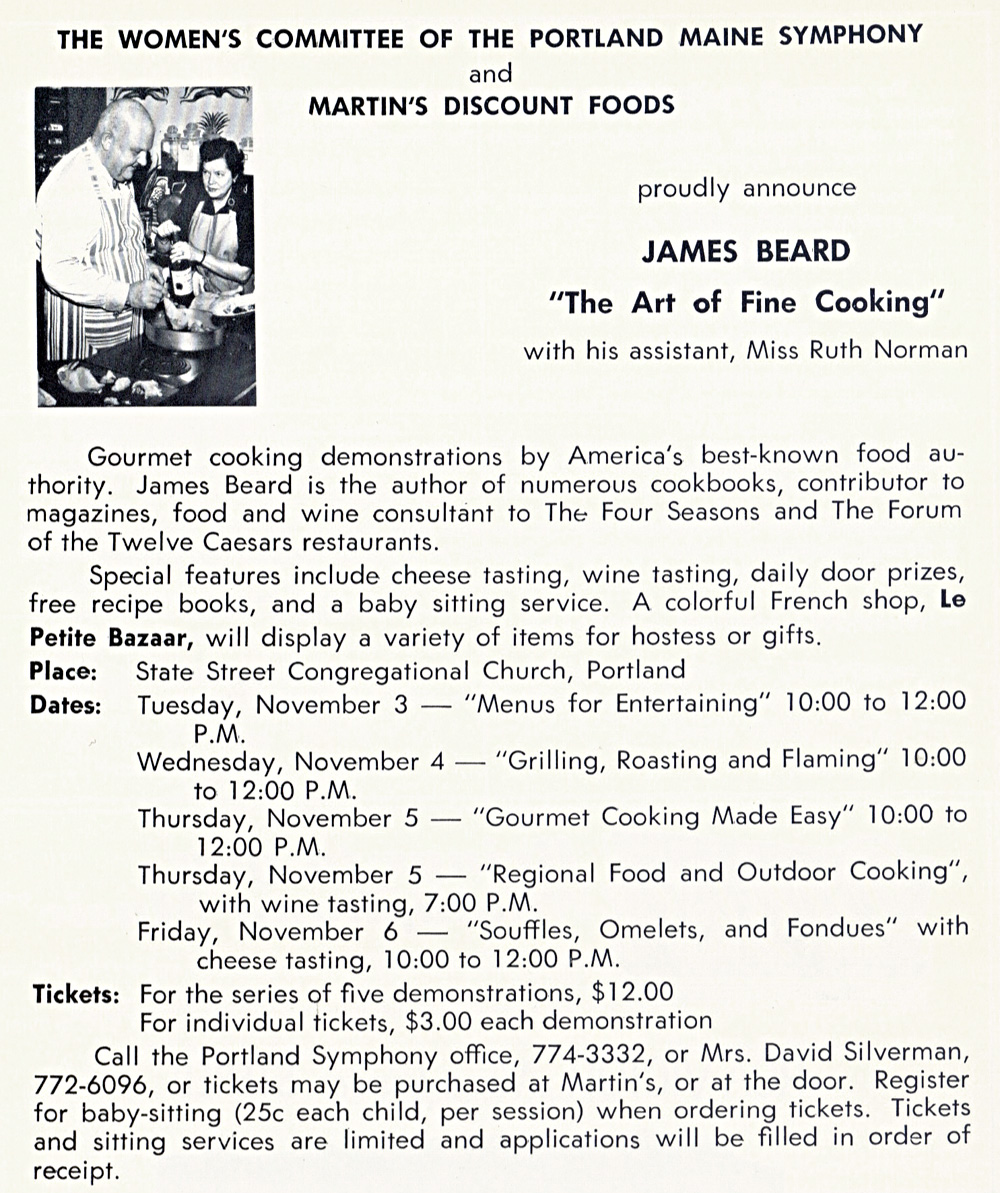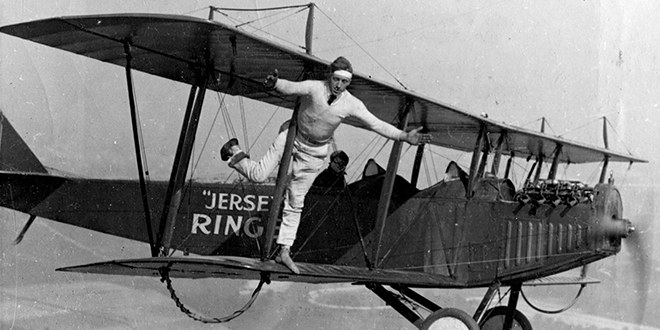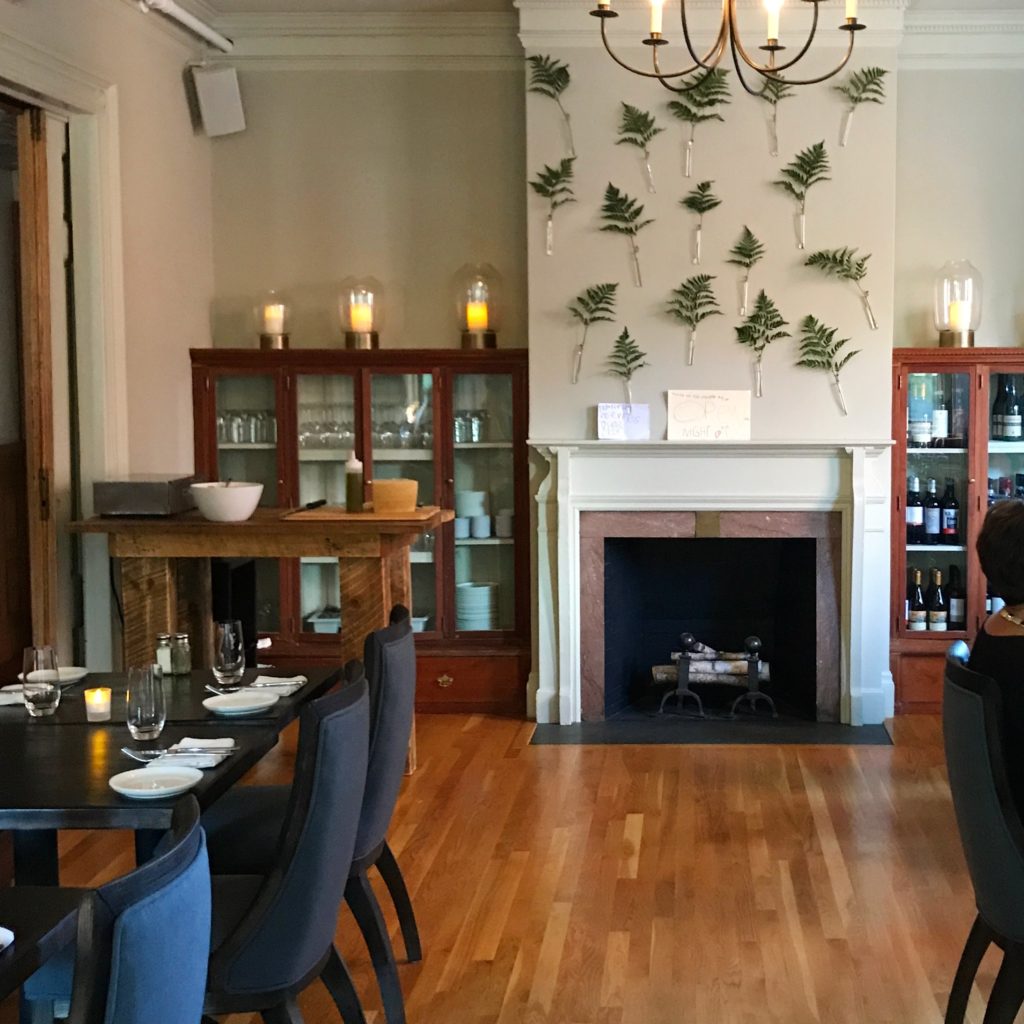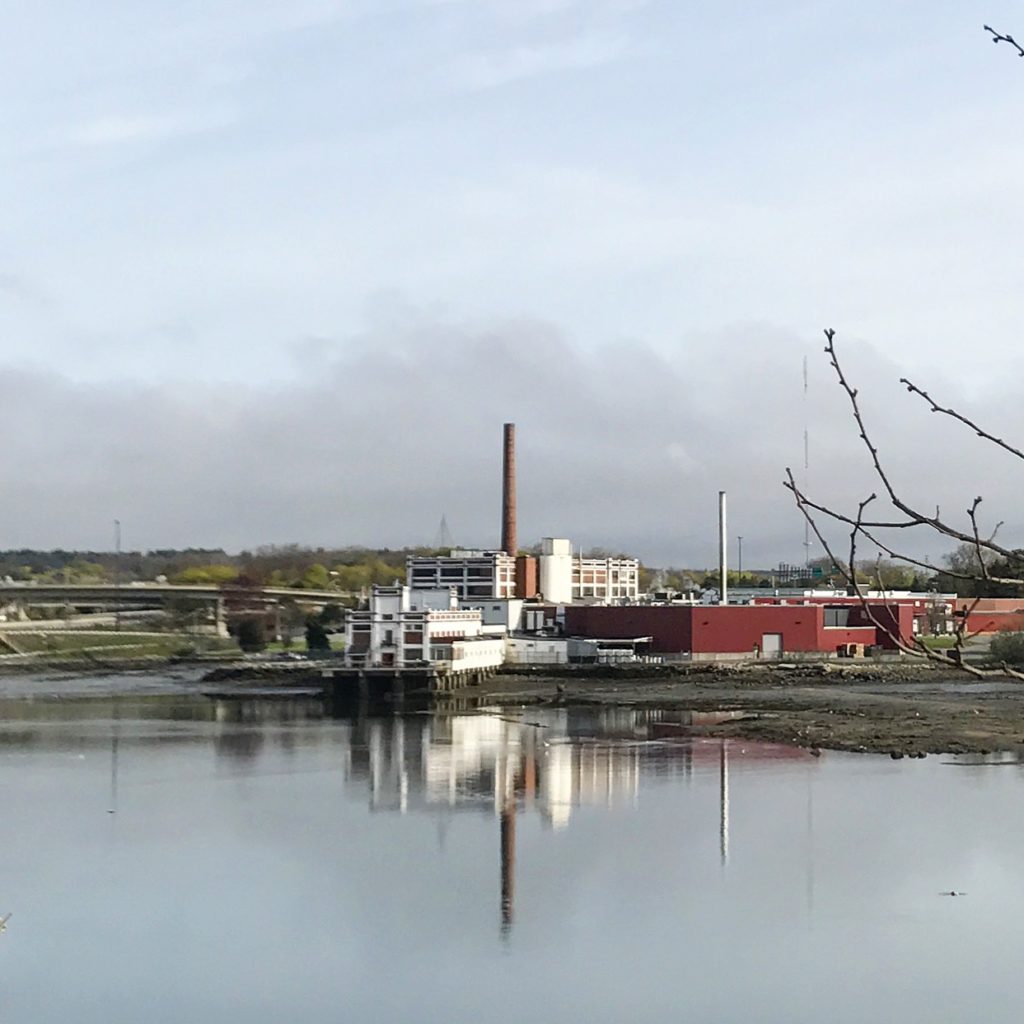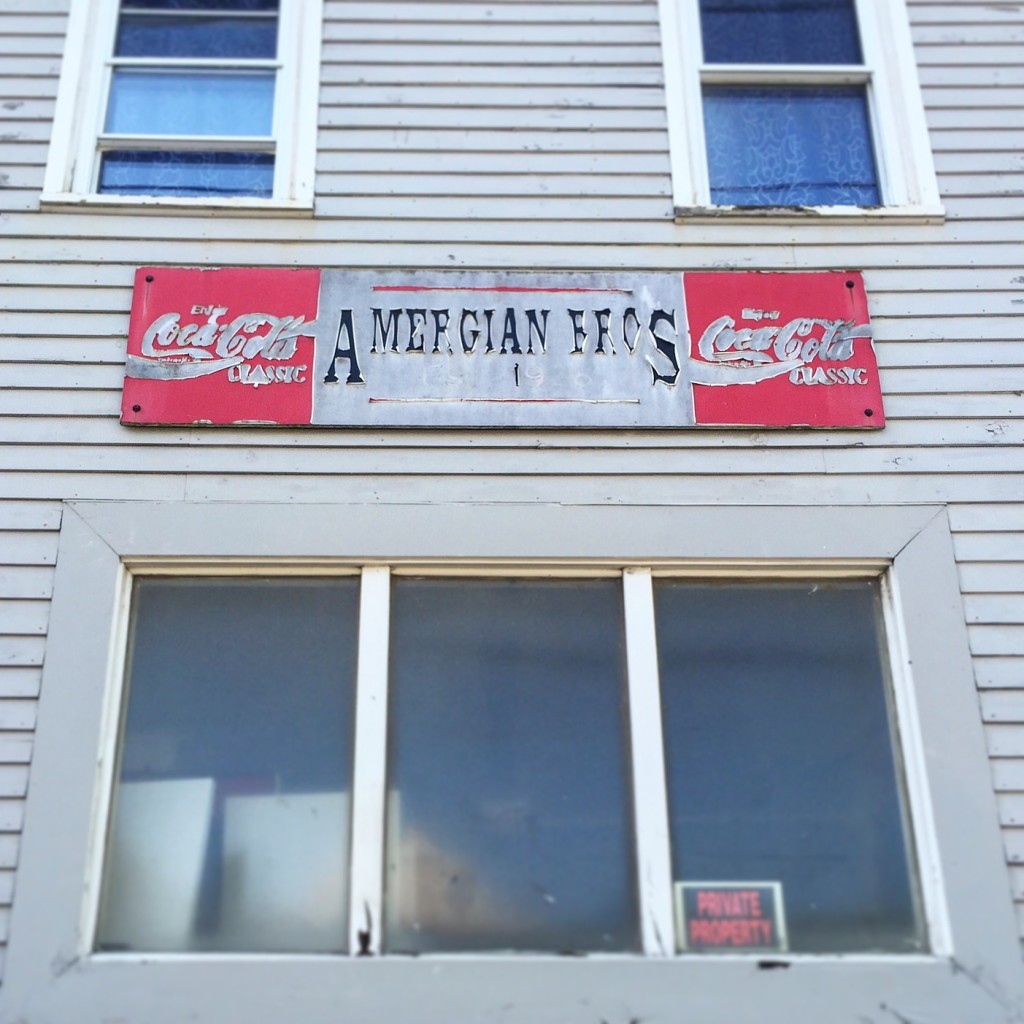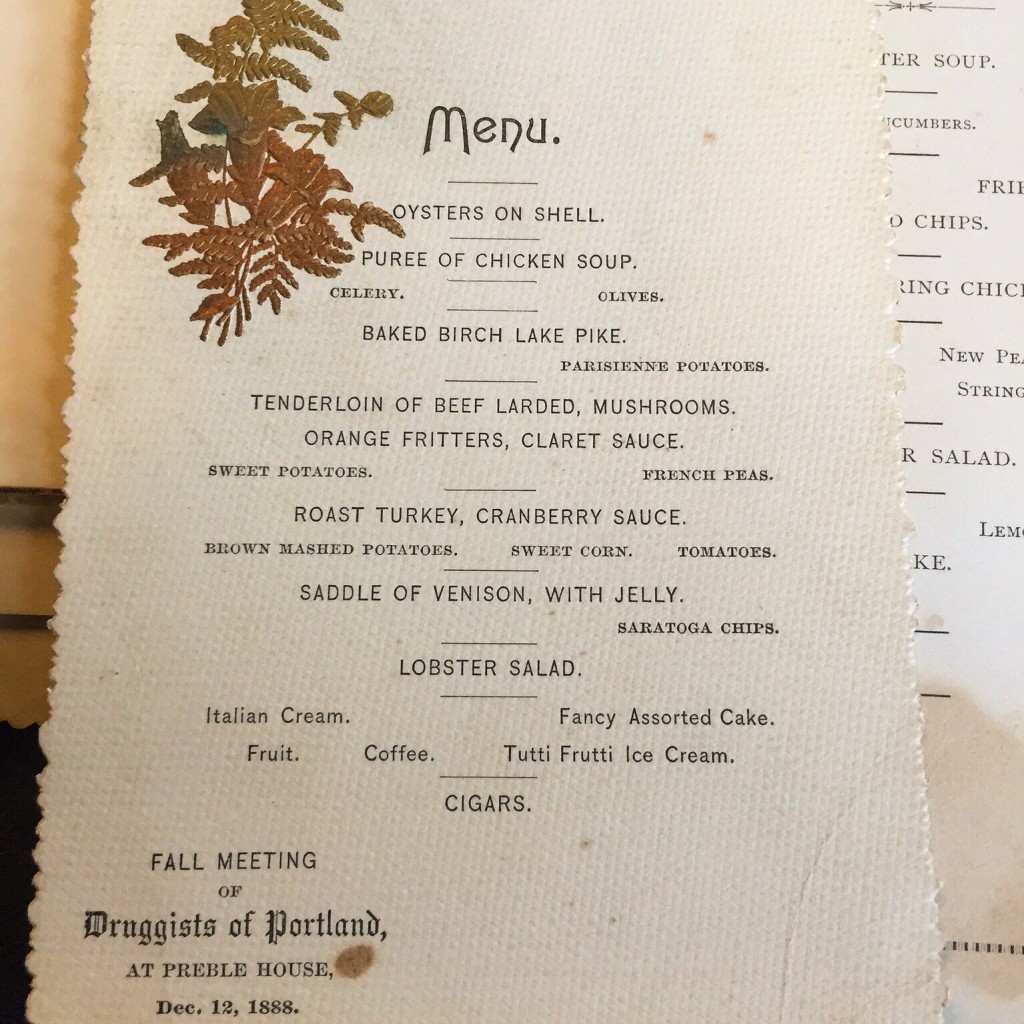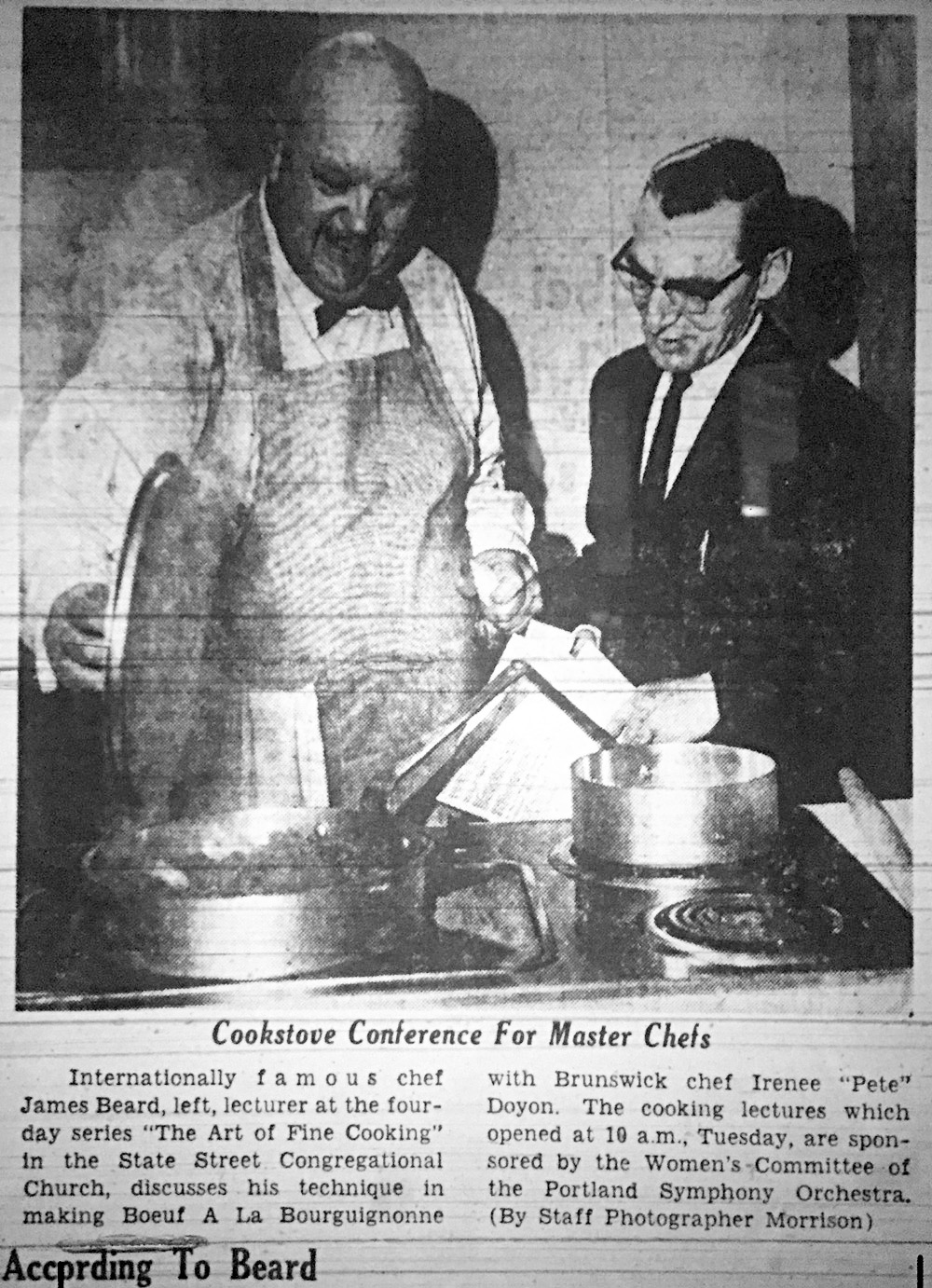 In November 1964 LBJ had just defeated Goldwater, the Sardine Law was front page news, and famed chef and food writer James Beard visited Portland to lead a 4-day series of cooking demonstrations organized by the Portland Symphony Orchestra as a fundraising activity for their 1964-65 season.
In November 1964 LBJ had just defeated Goldwater, the Sardine Law was front page news, and famed chef and food writer James Beard visited Portland to lead a 4-day series of cooking demonstrations organized by the Portland Symphony Orchestra as a fundraising activity for their 1964-65 season.
Reporter Hazel Loveitt from the Press Herald along with “more than 200 women and two men” (Brunswick chef Pete Doyon and home cook Harry Dunbar) were on site for the first day of classes. Loveitt reported,
Beard’s heroic proportions belied his agility as he did a culinary ballet between the stove, oven and food preparation. When he added “about a half teaspoon” of vanilla to the filling he was making for apple flan the master chef dispensed the flavoring directly from the bottle to the cooking pan with the flair of a showman.
While using the slim handleless French rolling pin to roll the tart flan Beard explained that the pin was easier to guide than the more common rolling pin.
An earlier version of the article was certainly a product of the times. President Kennedy has delivered his famous challenge for a moon landing 2 years earlier, and the article referred to the rolling pin as a “slim space-aged model”.
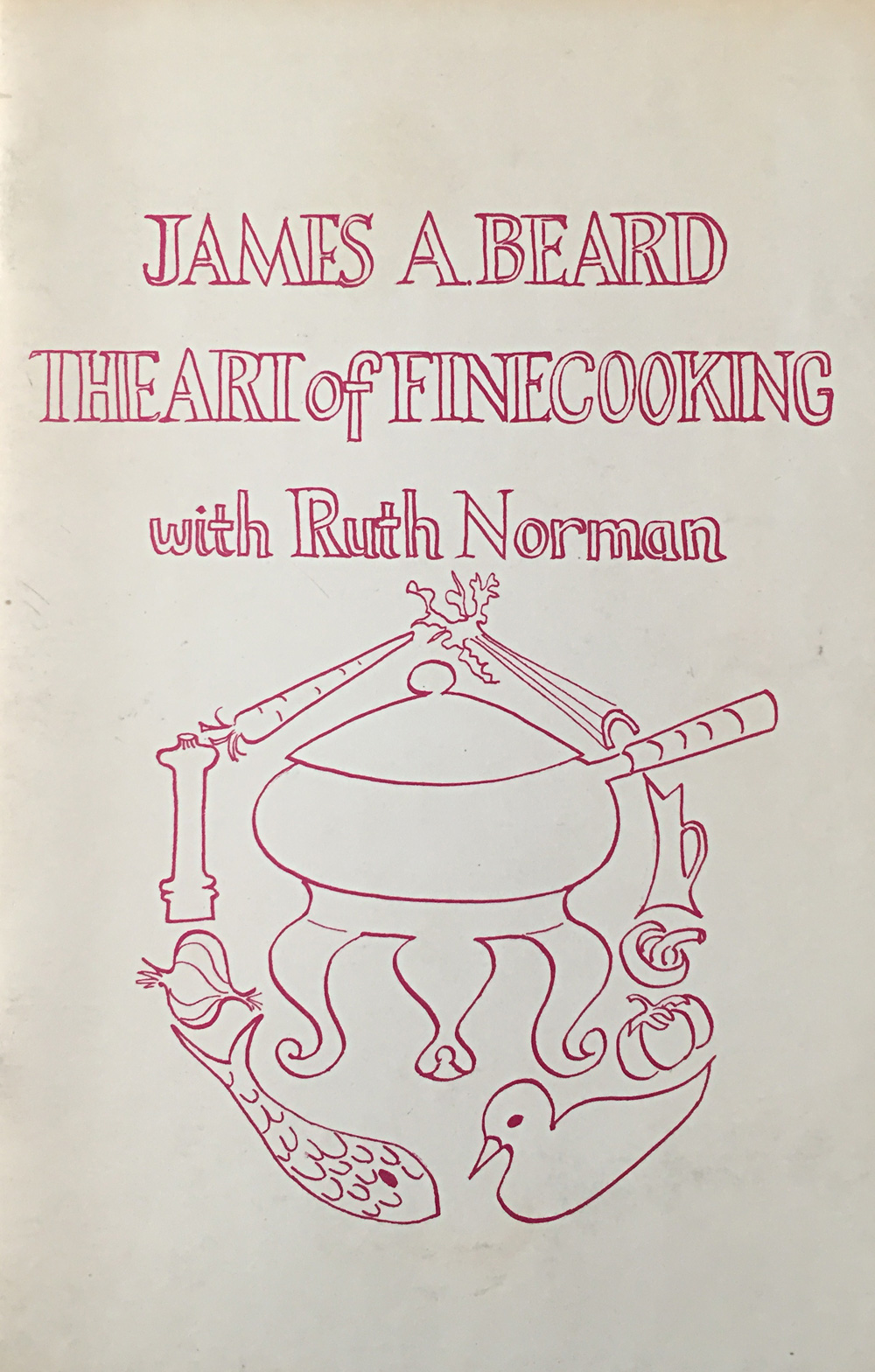 The town was still in the afterglow of Beard’s visit several day later when the paper published a follow-on piece which concluded “All calories aside, we’ve been living in a gastronomical Shangri-La.”
The town was still in the afterglow of Beard’s visit several day later when the paper published a follow-on piece which concluded “All calories aside, we’ve been living in a gastronomical Shangri-La.”
Beard was assisted with the classes by Ruth Norman and they were held at the State Street Church. Their entire series of 5 classes went for $12 per person. Accounting for inflation that would be $91 in today’s dollars—a bargain in any decade.
A half century later few people in town remember Beard’s visit, but as luck would have it one of few artifacts of that week, a booklet from Beard’s classes (shown above), came into the possession of Rabelais Books, and owner Don Lindgren brought it to my attention. It contains 34 pages of recipes from the classes. They’re an interesting mix of French, Italian, American and Asian cooking such as Salad Nicoise, Shish Kebab, Rummed Crab Spread, Cannelloni, Crepes Duxelles, Barbecued Spareribs and Fried Rice.
Many thanks to PSO historian Hank Schmidtt and to the Symphony for their assistance in researching this article.
